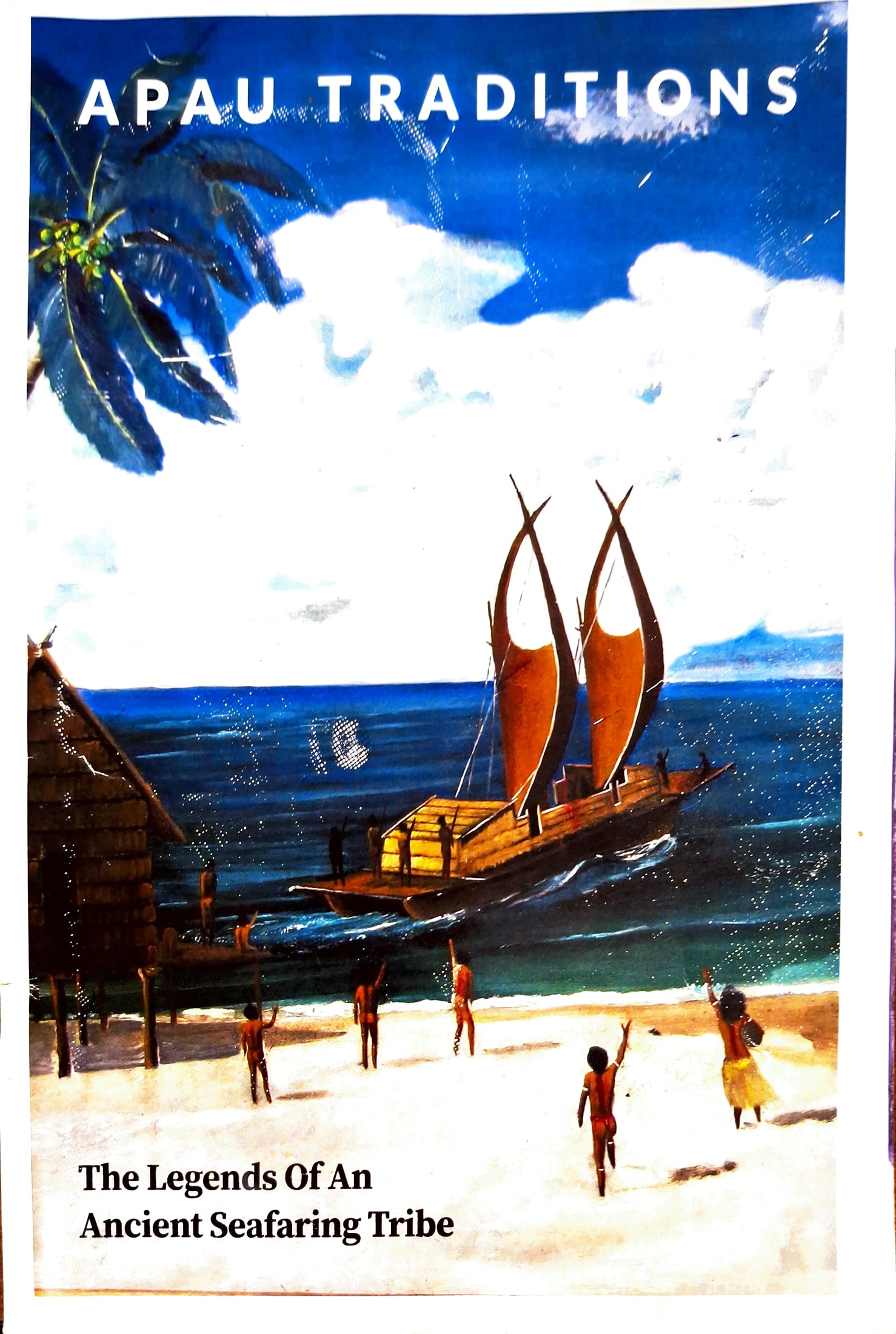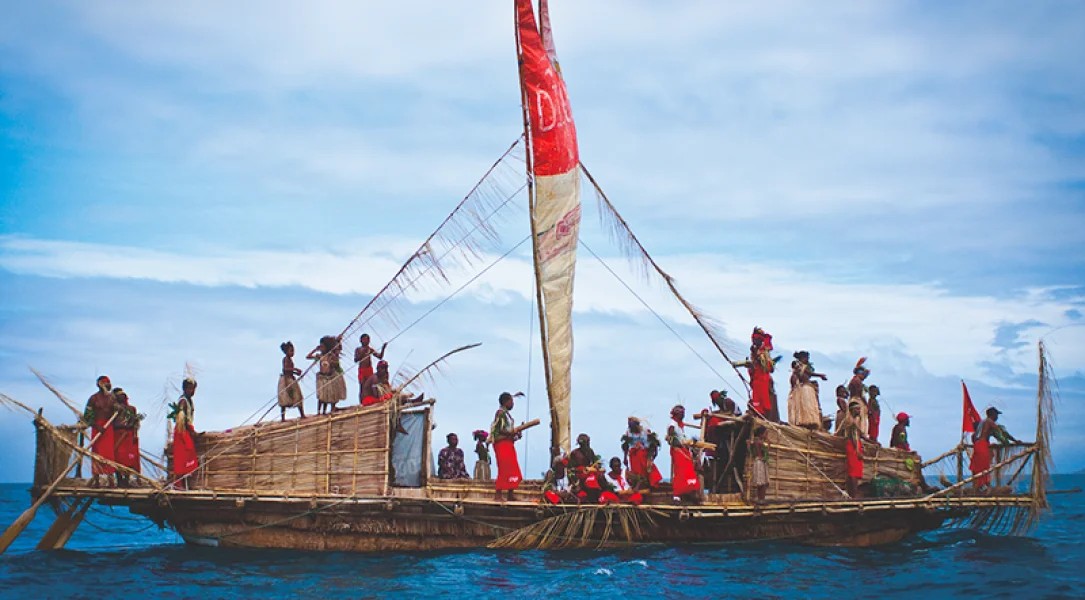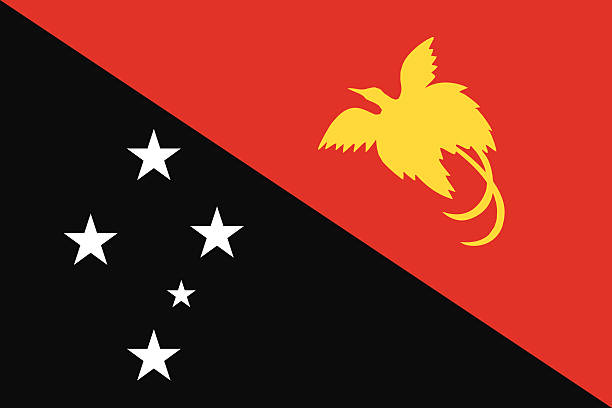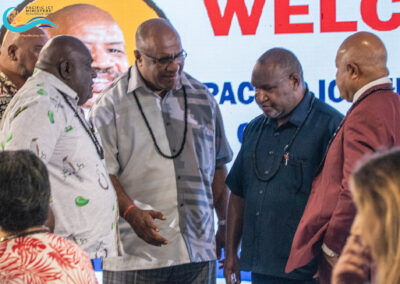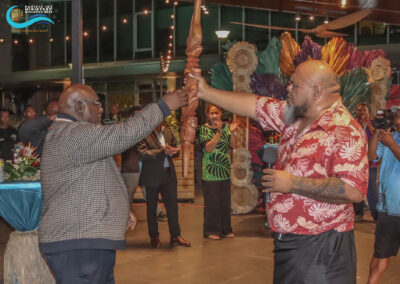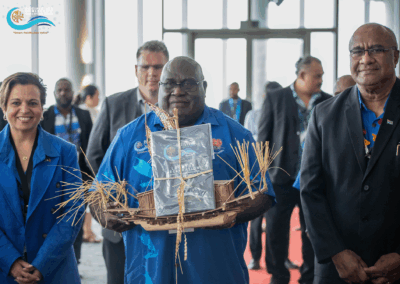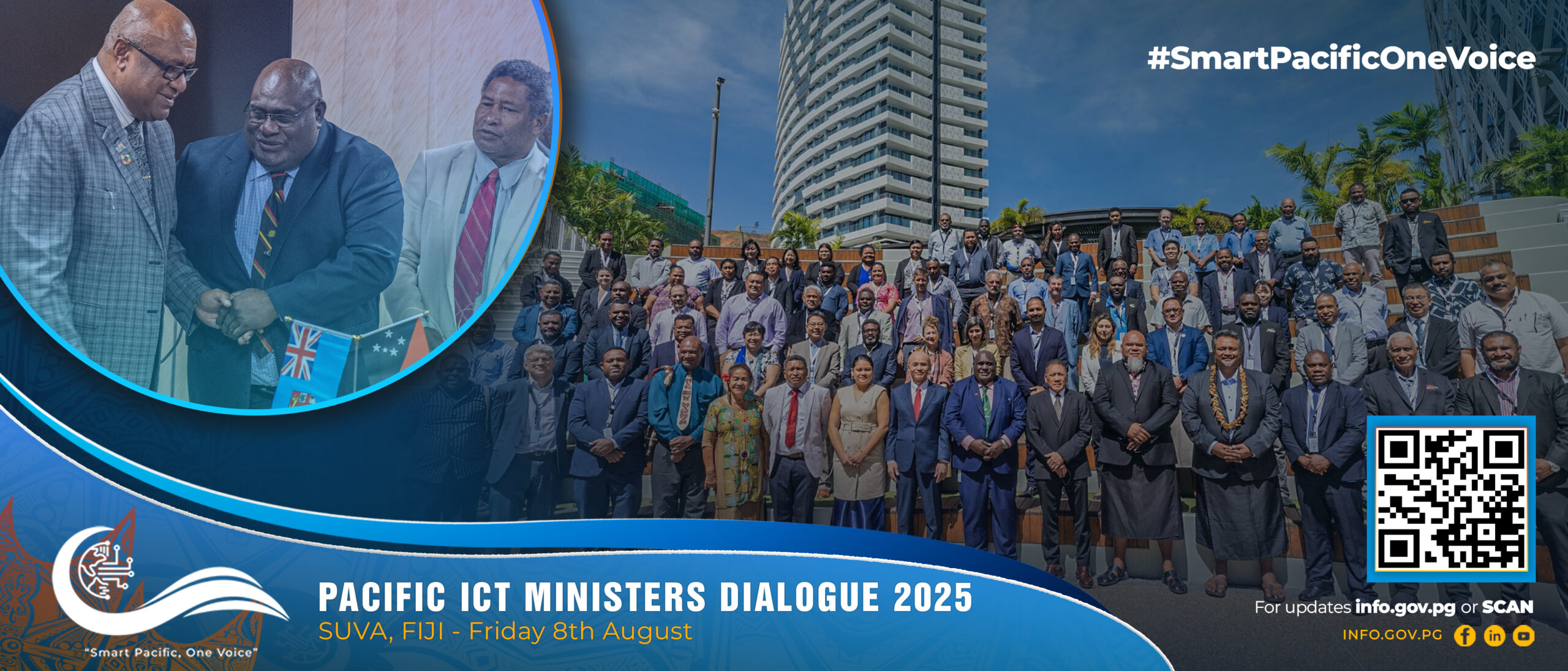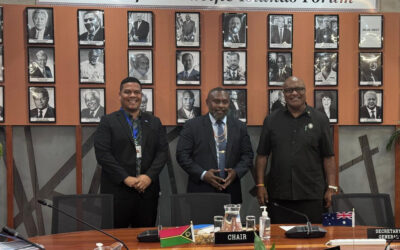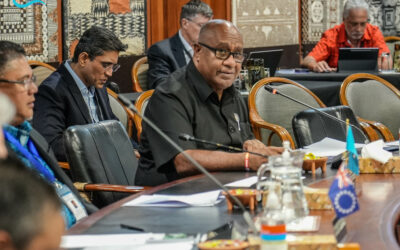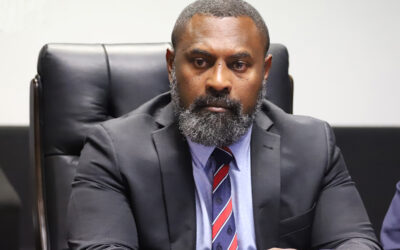Pacific ICT Ministers Dialogue 2025
The Pacific ICT Dialogue is a high-level ministerial platform that brings together Information and Communications Technology (ICT) leaders from across the Pacific Islands to shape a unified digital future. It’s more than just a meeting—it’s a strategic movement toward regional collaboration, innovation, and digital transformation.
Purpose and Vision
The Dialogue aims to:
- Strengthen regional cooperation on ICT policy, infrastructure, and cybersecurity
- Amplify the Pacific’s voice in global digital forums like the International Telecommunication Union (ITU)
- Advance inclusive digital development aligned with the 2050 Strategy for the Blue Pacific Continent
Key Milestones
- Inaugural Dialogue (2023): Hosted by Papua New Guinea, this meeting produced the Lagatoi Declaration, signed by 13 Pacific nations. It called for coordinated action on digital inclusion, connectivity, and policy harmonization.
- Second Dialogue (2025): Held in Suva, Fiji, this session focuses on:
- Reviewing national progress
- Finalizing the Pacific ICT and Digital Transformation Strategic Action Plan
- Endorsing a regional Governance Framework
- Issuing a joint communiqué to guide future efforts
Strategic Pillars
- One Pacific Voice on digital issues
- Tailored regional ICT solutions
- Stronger ITU presence in the Pacific
Who’s Involved?
- ICT Ministers and senior officials from up to 14 Pacific Island countries
- Supported by organizations like the Pacific Islands Telecommunications Association (PITA) and the PNG Department of ICT, which currently chairs the Dialogue
This initiative is a powerful example of Pacific nations asserting digital sovereignty and shaping their own technological destiny. If you’d like, I can help break down the Strategic Action Plan or explore how this aligns with broader governance and infrastructure goals.
Official Program PICT Ministers' Dialogue 2025
The Pacific ICT Ministers’ Dialogue 2025 is scheduled to take place on 8 August 2025 in Suva, Fiji, with a Senior Officials Meeting preceding it on 7 August.
The full event spans from 4 to 8 August, featuring preparatory sessions, bilateral meetings, and regional coordination activities.
This year’s Dialogue will focus on finalizing the Pacific ICT and Digital Transformation Strategic Action Plan, endorsing the Governance Framework, and issuing the Ministerial Communiqué—all key steps toward embedding the Dialogue within the Pacific Islands Forum structure for long-term sustainability.
Latest NEWS
Stay up to date with the latest news and announcements from the Pacific ICT Dialogue, including the Agency Heads Meeting and the ICT Ministers Dialogue
PNG REAFFIRMS ICT LEADERSHIP IN THE PACIFIC
Suva, Fiji - Friday 8th August, 2025 Minister Tsiamalili Calls for Stronger Regional Cooperation on Infrastructure, Cybersecurity and Digital Trust Acting Minister for Information and Communications Technology and Minister for Police, Hon. Peter Tsiamalili Jnr, has...
Tsiamalili urge Pacific Leaders to Innovate and Build Inclusive, Future-Ready ICT Infrastructure
Suva, Fiji — August 8, 2025 Police Minister and Acting Minister for ICT Hon. Peter L. Tsiamalili Jnr at the opening of the 2nd Pacific ICT Ministers Dialogue at the Pacific Islands Forum Headquarters in Suva, delivered a strong call to action, urging regional leaders...
Pacific ICT Ministers Dialogue Opens in Suva with Strong Commitments to Regional Digital Transformation
Suva, Fiji — August 8, 2025 PNG Acting ICT Minister and Minister for Police Hon. Peter Tsiamalili giving his opening remarks at the 2nd Pacific ICT Ministers Dialogue The 2nd Pacific ICT Ministers Dialogue officially opened yesterday, 7th August in Suva, Fiji,...
Masiu Reaffirms PNG’s Commitment to Regional Digital Transformation as Tsiamalili Serves as Acting ICT Minister; Pacific ICT Ministers Dialogue Commences in Suva
Suva, Fiji — August 8, 2025 https://www.youtube.com/watch?v=4LST530dXj8 Minister for Information and Communications Technology, Hon. Timothy Masiu, MP, delivered a stirring video address to the 2nd Pacific ICT Ministers Dialogue in Suva, Fiji, reestablishing the PNG...
Pacific ICT Senior Officials Finalize Key Documents Ahead of Ministerial Dialogue
Suva, Fiji — August 7, 2025 Senior officials and heads of government ICT agencies from 14 Pacific nations convene in Suva, Fiji for the Senior Officials Meeting of the Pacific ICT Dialogue. Senior officials and heads of government ICT agencies from 14 Pacific nations,...
PM Marape Appoints Police Minister Tsiamalili Jr. as Acting ICT Minister During Masiu’s Medical Leave
Thursday 7 August 2025 The Prime Minister has announced the formal appointment of Hon. Peter Tsiamalili Jr., current Minister for Police, as Acting Minister for Information and Communication Technology. This acting appointment, confirmed under National Gazette No....
Overview of the 2nd Pacific ICT Ministers Dialogue
Suva, Fiji – 8 August 2025
Session 1: Confirmation of the Chair and Vice-Chairs, Approval of the Agenda
Session 1 began with the official appointment of Hon. Peter Tsiamalili Jr of Papua New Guinea as Chair, supported by Hon. Simo Kofe of Tuvalu and Hon. Manoa Kamikamica of Fiji as Vice-Chairs. The Chair opened the dialogue by expressing gratitude to all participants for their leadership roles and commitment to the meeting’s success.
The proposed agenda was then presented for consideration. Delegates engaged in a brief discussion and, through consensus, adopted the agenda without amendment.
Session 2: National Updates and Regional Priorities
Chaired by Fiji’s Deputy Prime Minister Hon. Manoa Kamikamica, this session featured country delegations showcasing their digital transformation roadmaps and calling for deeper regional cooperation.
- Tonga highlighted its Smart Island Initiative, deploying Starlink terminals to remote communities, and outlined a comprehensive suite of policies from e-waste to disability training.
- New Zealand emphasized two priority areas: foundational digital transformation backed by a NZD 6 million Pacific Digital Economy Program, and innovation through a national AI Strategy aligned with OECD principles.
- Tuvalu noted its recent submarine cable and Starlink gateway, underscored emerging risks like misinformation, and introduced a “Digital Ark” to preserve culture and empower youth.
- Vanuatu reaffirmed the Lagatoi Declaration, presented its Digital Transformation Masterplan, and called for scaling Smart Island pilots to support MSME innovation.
- Federated States of Micronesia stressed connectivity as a lifeline across 607 islands, commended partnerships with Google and ITU, and endorsed key cyber and data protection legislation.
- Fiji announced completion of its National Digital Strategy, committed to cyber resilience, and invited industry collaboration to realize its roadmap.
- Papua New Guinea outlined its dual focus on infrastructure—such as the Coral Sea and Kumul submarine cables, spectrum planning, and cloud migration—and on trust through security policies, incident response teams, and global cybercrime conventions.
- Niue flagged the transformative impact of undersea cables on 4G coverage, raised concerns about LEO operators’ effects on taxation and data sovereignty, and progressed cybersecurity and telecommunications reforms.
- Australia, Solomon Islands, Samoa, and Kiribati each voiced support for shared priorities—from expanding submarine cables and combating online harms to advancing e-commerce, e-health, and digital literacy—demonstrating broad commitment across the Pacific.
Session 3: Digital Infrastructure, Security, and Trust
Ministers returned to core themes of interoperable infrastructure and collective cybersecurity. Fiji reaffirmed shared responsibility under the Lagatoi Declaration and its accession to the Budapest Convention protocols. PNG detailed its Digital Government Act, Digital ID system, and secure data exchange platform, alongside a 64 percent rise in cyber threats.
Delegates agreed on the need for standardized threat-intelligence sharing, capacity building through PaCSON, and joint implementation of UN norms for responsible state behavior in cyberspace.
Cross-Cutting Themes
- Regional solidarity amplifies individual efforts and underpins inclusive growth.
- Connectivity—via cables, satellites, and domestic fibre—is non-negotiable for education, health, commerce, and disaster resilience.
- Cybersecurity and trust frameworks must evolve in tandem with infrastructure investments.
- Digital literacy, youth empowerment, and cultural preservation are central to sustainable transformation.
- Partnerships with multilateral agencies, the private sector, and development partners are critical enablers.
Way Forward
Ministers committed to implementing the Lagatoi Declaration’s six priority areas through national action plans and strengthened regional mechanisms.
Next steps include finalizing cybercrime legislation, launching data protection policies, scaling Smart Island initiatives, and coordinating investments in shared infrastructure.
This dialogue reaffirms that a cohesive Pacific digital ecosystem—grounded in trust, resilience, and inclusivity—will drive the region’s shared prosperity.
PICT MD Exhibition
What is a Lagatoi?
The Lagatoi is a traditional multi-hulled sailing canoe of the Motu people in Papua New Guinea, historically used for long-distance trade voyages known as the Hiri expeditions. This tradition of seafaring and exchange is echoed across the Pacific—from Fiji’s Drua and Tonga’s Kalia to Micronesia’s proas—where voyaging vessels served not only as transport but as cultural bridges, connecting islands through trade, kinship, and shared purpose. The Lagatoi thus represents a broader Pacific legacy of navigation, unity, and collective progress—values now carried forward in regional initiatives like the Lagatoi Declaration.
Set sail on a journey through history with the Lagatoi Exhibit, a special feature of PICTMD 2025. Our collection of books explores the incredible story of how the Lagatoi—a symbol of ingenuity and seafaring tradition—came to be. From the Motu people’s ancestral knowledge of boat-building to the daring Hiri trade voyages that connected communities, these books reveal a legacy of collaboration and innovation that is as relevant today as it was centuries ago.
